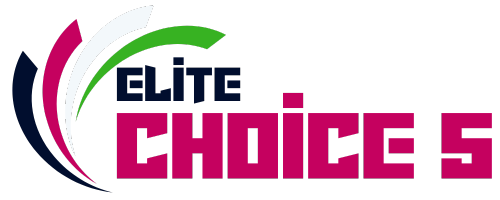
Top 5 Online Learning Platforms Helping Learners Succeed in 2025
Online learning platforms in 2025 have evolved into powerful ecosystems that offer flexibility, affordability, and high-quality education. Whether you want to launch a career in technology, learn a new language, or even create your own online course, there’s a platform tailored to your needs.
These platforms go beyond pre-recorded lessons — many now include interactive projects, real-time feedback, certifications, and even career guidance. They’re designed to help learners not only acquire knowledge but also apply it in real-world scenarios.
Here we highlight the Top 5 Online Learning Platforms in 2025 that stand out for their innovation, features, and global impact. Each one offers unique strengths, catering to different learning and teaching goals.
1. Teachable
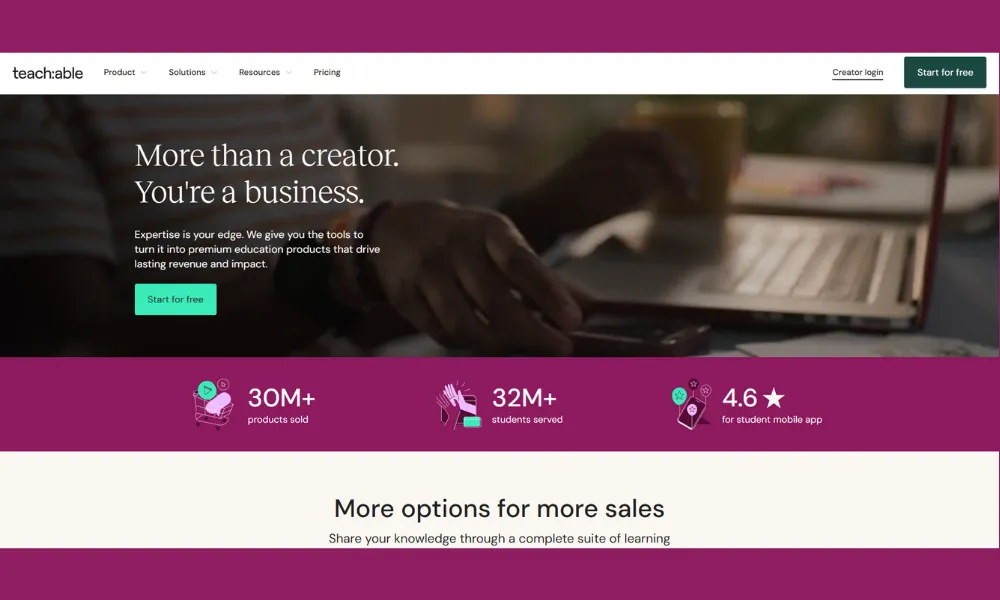
Teachable is a leading platform for creating and selling online courses. It empowers instructors, entrepreneurs, and businesses to share their knowledge with students worldwide.
The platform provides easy-to-use tools for building courses, including video hosting, quizzes, and payment integration. It also supports custom branding, allowing creators to design a professional online school.
Teachable has become the go-to solution for anyone looking to monetize their expertise through structured online learning.
Pros
- Great for entrepreneurs and educators
- Supports video, quizzes & downloads
- Customizable branding options
- User-friendly course creation tools
- Built-in payment processing
Cons
- Focused more on creators than learners
- Limited marketing tools compared to competitors
- Transaction fees on lower plans
Teachable is best for creators who want to start an online education business without needing technical skills. Its drag-and-drop interface makes setup simple.
The platform integrates with email marketing tools and analytics, helping instructors grow their audience.
In 2025, Teachable remains one of the most trusted names for building and scaling online course businesses.
Reviews
Course Variety
4.2/5
Affordability
4.4/5
Learning Experience
4.5/5
Ease of Use
4.7/5
Value for Money
4.6/5
2. DataCamp
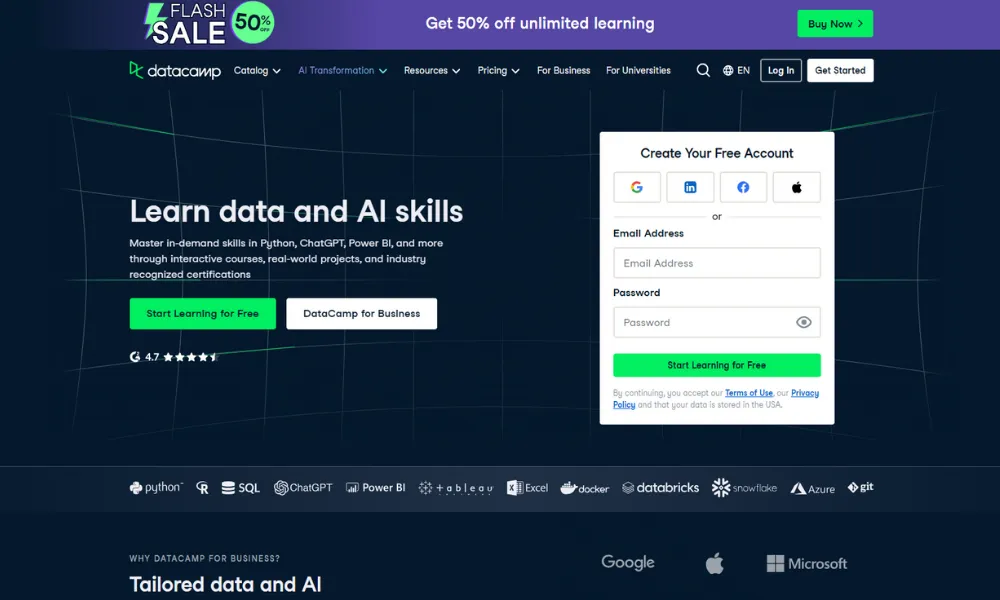
DataCamp is a platform dedicated to data science, machine learning, and analytics. It helps learners master skills like Python, R, SQL, and data visualization.
The platform offers interactive coding challenges and real-world projects that reinforce concepts through practice. With over 380 courses, it caters to beginners as well as advanced data professionals.
DataCamp also provides career tracks and skill assessments, making it easier for learners to follow structured paths to job readiness.
Pros
- Affordable subscription model
- Wide variety of tech-focused courses
- Career tracks & skill assessments
- Hands-on coding environment
- Specialized in data science & analytics
Cons
- Certificates not always employer-recognized
- Limited topics outside of data science
- Advanced learners may find content too basic
DataCamp is ideal for students, professionals, and career changers entering the data industry. Its guided projects provide practical experience that can be added to portfolios.
The platform’s bite-sized lessons are flexible, allowing learners to practice coding in short sessions.
In 2025, DataCamp remains one of the most effective ways to learn data skills in a hands-on and interactive format.
Reviews
Course Variety
4.6/5
Affordability
4.5/5
Learning Experience
4.7/5
Ease of Use
4.6/5
Value for Money
4.7/5
3. Codecademy
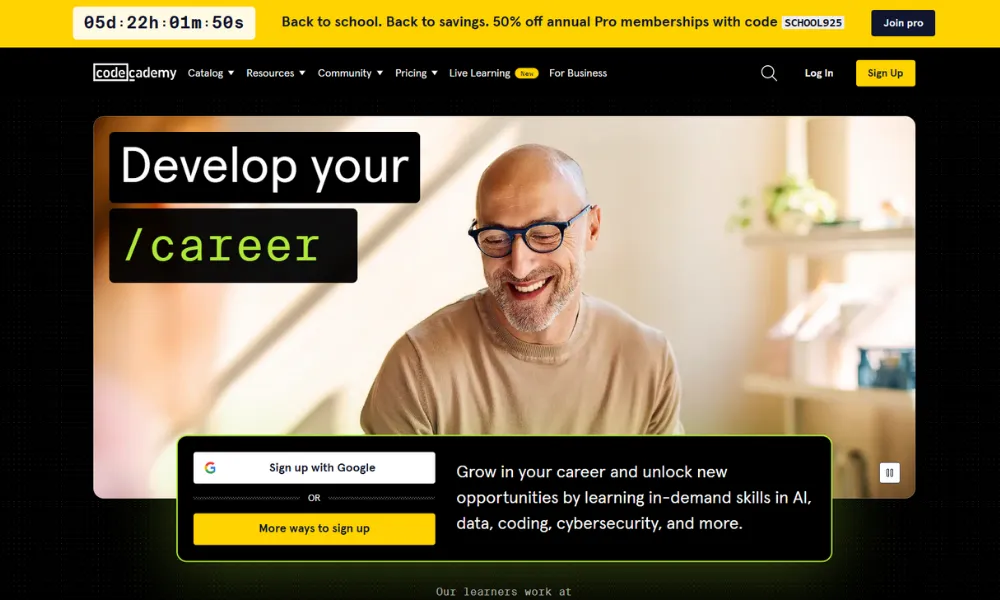
Codecademy is a popular platform for learning programming and web development. It offers interactive lessons that allow learners to code directly in the browser.
With courses covering Python, JavaScript, HTML, CSS, and more, Codecademy caters to beginners and professionals alike. The platform also provides career paths that combine multiple courses for job readiness.
Its hands-on, interactive style makes learning to code less intimidating and more engaging.
Pros
- Active learner community
- Beginner-friendly approach
- Covers a wide range of programming languages
- Career paths for structured learning
- Interactive coding lessons in-browser
Cons
- Full features require a paid plan
- Limited advanced-level content
- Certificates may not carry formal accreditation
Codecademy is best for those new to coding or looking to explore programming as a career option. Its interactive platform makes it easy to practice concepts right away.
For professionals, it also offers Pro memberships with real-world projects and technical interview prep.
In 2025, Codecademy continues to be one of the most accessible and engaging ways to start a career in coding.
Reviews
Course Variety
4.6/5
Affordability
4.4/5
Learning Experience
4.8/5
Ease of Use
4.7/5
Value for Money
4.6/5
4. Rosetta Stone

Rosetta Stone is one of the most established names in language learning. Known for its immersive approach, it helps learners pick up new languages naturally without heavy reliance on translation.
The platform covers over 20 languages, including Spanish, French, German, Mandarin, and Arabic. Its voice recognition technology improves pronunciation and builds conversational confidence.
With decades of experience, Rosetta Stone has become a trusted choice for learners worldwide.
Pros
- Trusted global brand
- Mobile-friendly platform
- Strong focus on pronunciation
- Covers 20+ languages
- Immersive language-learning method
Cons
- Less grammar-focused than academic platforms
- Learning style may not suit everyone
- More expensive than some competitors
Rosetta Stone is ideal for learners who prefer natural language acquisition, similar to how children learn. Its focus on listening and speaking builds conversational skills quickly.
The platform works well for travelers, professionals, and students looking to expand language abilities.
In 2025, Rosetta Stone continues to lead as one of the most recognized and immersive language learning tools.
Reviews
Learning Experience
4.3/5
Affordability
4.2/5
Learning Experience
4.6/5
Ease of Use
4.7/5
Value for Money
4.5/5
5. Udacity
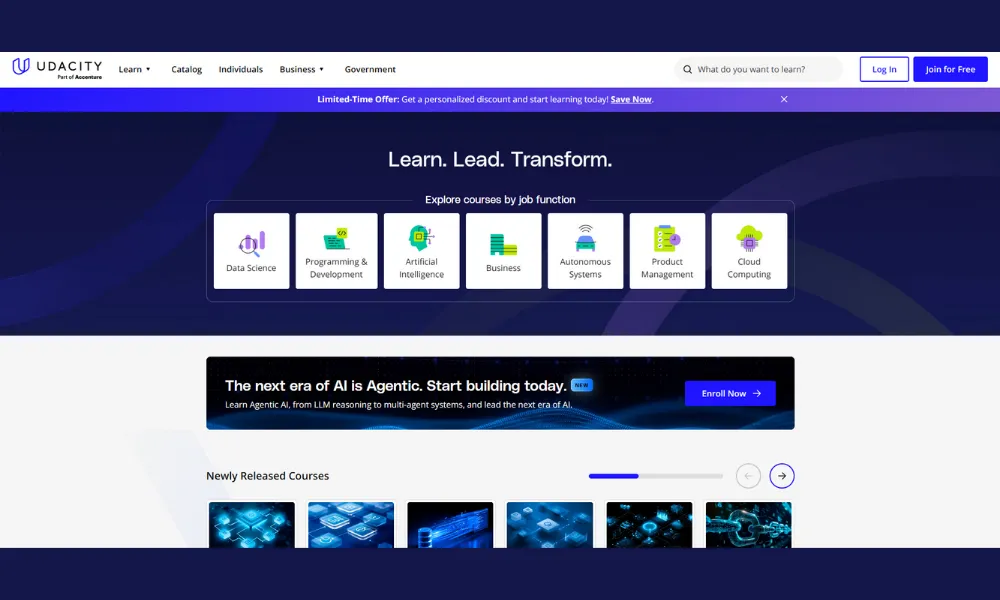
Udacity is a leading platform for career-focused education, offering “Nanodegree” programs in fields like data science, artificial intelligence, and digital marketing.
Its courses are developed with industry leaders like Google, Microsoft, and IBM, ensuring relevance to real-world job markets.
With mentorship, career services, and hands-on projects, Udacity is designed to prepare learners for high-demand tech careers.
Pros
- Recognized by employers
- Mentorship and career guidance
- Hands-on projects with real-world relevance
- Career-focused Nanodegree programs
- Industry partnerships with top companies
Cons
- Programs require time commitment
- Focused mainly on tech & business
- Premium pricing compared to other platforms
Udacity is ideal for professionals and students who want job-ready training in cutting-edge fields. Its Nanodegrees are intensive but provide portfolio-worthy projects.
Many learners use Udacity to upskill or transition into tech-focused careers. Employers also recognize its strong ties with industry leaders.
In 2025, Udacity remains one of the most valuable platforms for those who want advanced, career-focused online education.
Reviews
Course Variety
4.5/5
Affordability
4.3/5
Learning Experience
4.8/5
Ease of Use
4.6/5
Value for Money
4.7/5
FAQ
1. Which platform is best for creating and selling courses?
Teachable is ideal for instructors and entrepreneurs who want to build and monetize online courses.
2. Which platform specializes in data science?
DataCamp is focused on data analysis, coding, and machine learning skills.
3. Which platform is best for coding beginners?
Codecademy provides an interactive environment to learn coding languages from scratch.
4. Which platform is best for immersive language learning?
Rosetta Stone is the top choice for learning new languages through natural immersion.
5. Which platform is best for career-ready training?
Udacity offers Nanodegree programs designed in partnership with leading companies.
6. Do these platforms provide certificates?
Yes. Teachable, DataCamp, Codecademy, and Udacity provide certificates, while Rosetta Stone focuses on fluency.
7. Which is the most affordable?
DataCamp and Codecademy offer affordable subscriptions, while Udacity is premium-priced.
8. Can I learn at my own pace?
Yes. All five platforms allow self-paced learning, though Udacity programs require structured timelines.
9. Which platform is best for professionals seeking promotions?
Udacity and DataCamp are ideal for tech professionals, while Teachable empowers educators to expand their careers.
10. Do these platforms offer mobile access?
Yes. All five platforms provide mobile-friendly access, with apps available for learning on the go.
Disclaimer: This website provides free online resources designed to deliver helpful content and comparison features. While we aim for objectivity, we may receive advertising compensation from certain service providers featured on our platform, which could influence the rating and ranking of these providers. It’s important to understand that our listings do not constitute endorsements. Our ranking and rating system is based on a combination of user experience, views, ratings, and comments. The information and site are provided “as is,” and your use of the site is at your own risk. We strive to keep information, including pricing and reviews, accurate and up-to-date, but may not cover all service providers worldwide, focusing instead on recommending top brands based on our research and expertise. Additionally, as a comparison site, we offer coupons and links to brands’ websites. Please note, we do not endorse or sell any products containing illegal substances or those that violate Google’s advertising policies.
